
From the Chapter
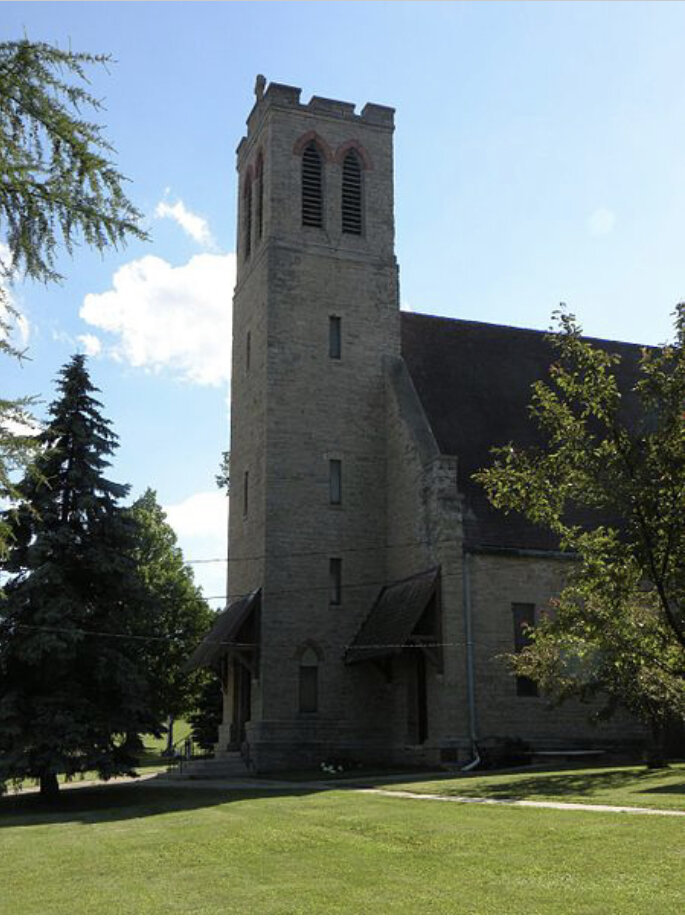
The Historic Friendship of the Oneida Tribe with Nashotah House
Nashotah House’s legacy of historic relationships reaches across the U.S. and abroad. Among them are the Oneida tribe, who, since the mid-1830s, have enjoyed a rich tradition in both Wisconsin and with Nashotah House. The Rt. Rev. Jackson Kemper, the first missionary bishop to the Episcopal Church in the United States (1835-1870), was known to the Oneida as Ha-re-ro-wa-gon or “He who has the Power over all the Words.” Also among the friends of the Oneida was the third Bishop of New York and founder of General Theological Seminary, John Henry Hobart (1816-1830), after whom the Oneida named their first church, Hobart Church.

Going Behind Aquinas: Nouvelle Théologie and the Catholic Retrieval of Mystery
By Hans Boersma, Ph.D.
In 1946 in a world shattered by war, the Catholic Church stood as an unmoved landmark. For Catholics the church offered refuge from the chaos of the twentieth century and a moral and intellectual vantage point from which to criticize the secular world and offer a constructive alternative. The bedrock of this confident, assertive Catholicism was the philosophy and theology of Thomas Aquinas (1225–1274), enshrined by Leo XIII in his 1879 encyclical Aeterni Patris as “the special bulwark and glory of the Catholic Faith.”
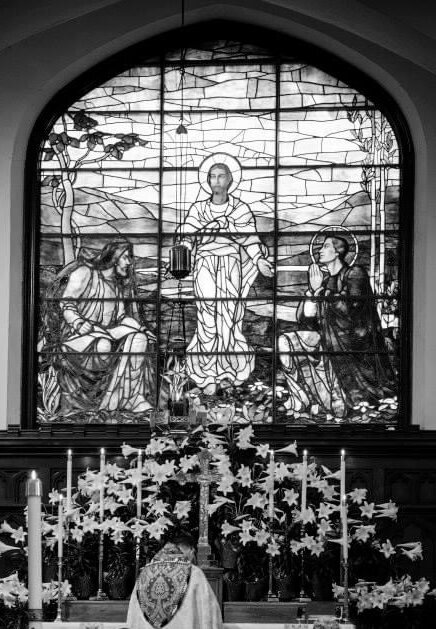
A School for the Lord’s Service
By The Rev. Lee Nelson, ‘05, SSC
Time is a central part of the rule. The day is not only fitted to the various seasons, but it tells you when to pray and when to eat and when to read. Benedict will say you might be working on the most important sentence ever written, but when the bell rings, you head to the chapel to pray. Nothing is to be preferred to the love of Christ. We Anglicans have a great deal to say about the sanctification of time through not only the Church Year, but also through the constant practice of the Daily Office. Further, through the constant celebration of the Eucharist, we enter into God’s unceasing time. This forms the soul in a way of conversion.

On Church without Taste
By Samuel C. R. Cripps
I see them unmasked, praise band cranking, not an altar in sight, and I sometimes get a certain feeling of both jealousy and superiority. Jealousy that they can fellowship with the other members of their congregation while I cannot; and superiority in that I consider my tradition and my customs a little more “proper” or a little more “refined.”

To Delight in His Will and Walk in His Ways
By The Rev. Dr. Nathaniel Kidd, ’12
The central success of Fr. Westberg’s book is its quiet demonstration that moral theology can indeed be “renewed” in our times without being “revolutionized” according to secularism, or becoming distracted by the blunders of well-intended but ill-considered church or societal policies. By representing a deep and comprehensive Christian moral vision, he shows us that the Church’s tradition of moral reasoning speaks, not just to a handful of moral and social issues, but to the entire essence of humanity.

H.H. Kano: Farmer, Teacher, Priest, Saint
By The Rev. Charles Hoffacker, ’82
“We must bring into our hearts the God who is the source of life, wisdom, love, peace, and justice,” wrote Fr. Hiram Kano. “We must firmly believe that our hearts are the palace of our God, then our world will naturally become more light; strength with hope will be given to us; our bodies, even if under the restraints of imprisonment, will transcend time and space in the environment of freedom. This huge happiness we can have now if we have faith.”

Homeschooling with Canterbury House of Studies
By Jim and Emily Watkins
It’s no secret more children are being taught at home, especially as the reality of a global pandemic has spilled into a new academic year. Parents wanting to root their children’s education in Christian faith confront many of the same issues as those in traditional schools when choosing a curriculum.
One is the thorny issue of deciding how to teach particular doctrines or practices. Many K-12 Christian educators tell parents that their school will teach the “core” of the faith, or will “just focus on the Bible,” aiming to assure parents that what their children learn won’t conflict with their family’s tradition.
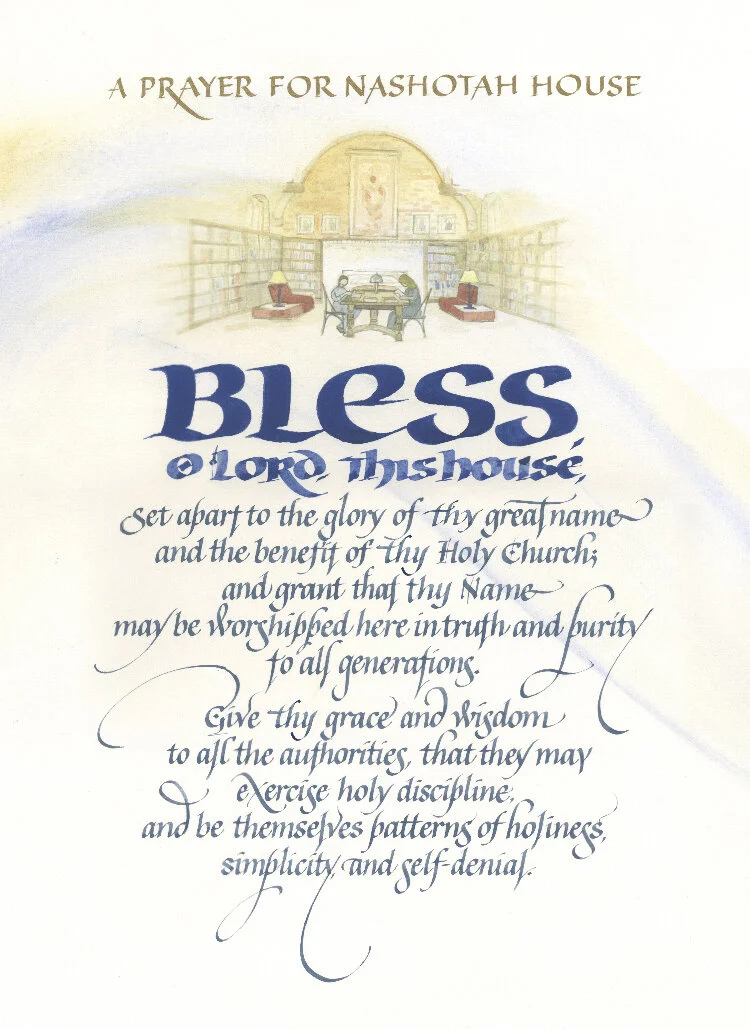
“Bless, O Lord, This House…”: Calligraphy of Our Familiar Prayer
When the need for an updated, three-panel artistic rendering of our Nashotah House prayer came to our attention recently, one of our staff was reminded of a local artist/calligrapher, Lorraine Otner Blake. A few weeks later, the triptych is complete and will soon become available to our Nashotah House community in a variety of downloadable and printed formats.
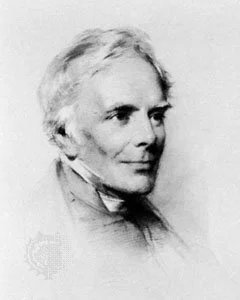
Notable Tracts from the 18th and 19th Centuries
Collected among the treasures housed in the Frances Donaldson Library, a generous gift from Nashotah House’s friend Richard Mammana enjoys its safekeeping. A number of years ago, Mammana — founder and director of the free online archive Project Canterbury — donated 488 American tracts and pamphlets from bishops, clergy, and laity of the Episcopal Church, dating from the 1700s to 1900s.
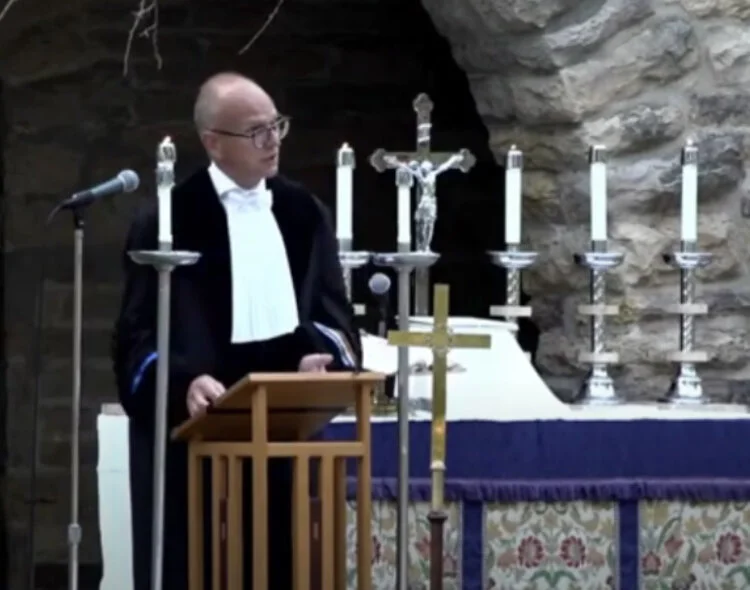
Matriculation Sermon, Michaelmas 2020
By Hans Boersma, Ph.D., Saint Benedict Servants of Christ Professor in Ascetical Theology at Nashotah House
This year’s lectionary readings for the matriculation service at the seminary where I teach were rather curious. They were from Psalm 90 (“You return man to dust and say, ‘Return, O children of man!’”), Ecclesiastes 1 (“Vanity of vanities, says the Preacher, vanity of vanities! All is vanity”), and Luke 9 (“Herod said, ‘John I beheaded; but who is this about whom I hear such things?’ And he sought to see him”). For encouragement at the outset of the seminarians' studies, one would think almost any other passage might have done better than these.

Shame and Glory of the Evangelicals
By Peter C. Schellhase, ’20
Evangelical Anglicanism has among its heroes those who took a courageous stand against social injustice. These include William Wilberforce (1779-1833), the English parliamentarian who devoted much of his political career to ending the slave trade. Wilberforce, like other evangelicals, also pressed domestic moral reforms. He argued that for too many people religion was merely an adornment of genteel living, urging his readers to holiness of life and to bring forth fruit worthy of repentance.
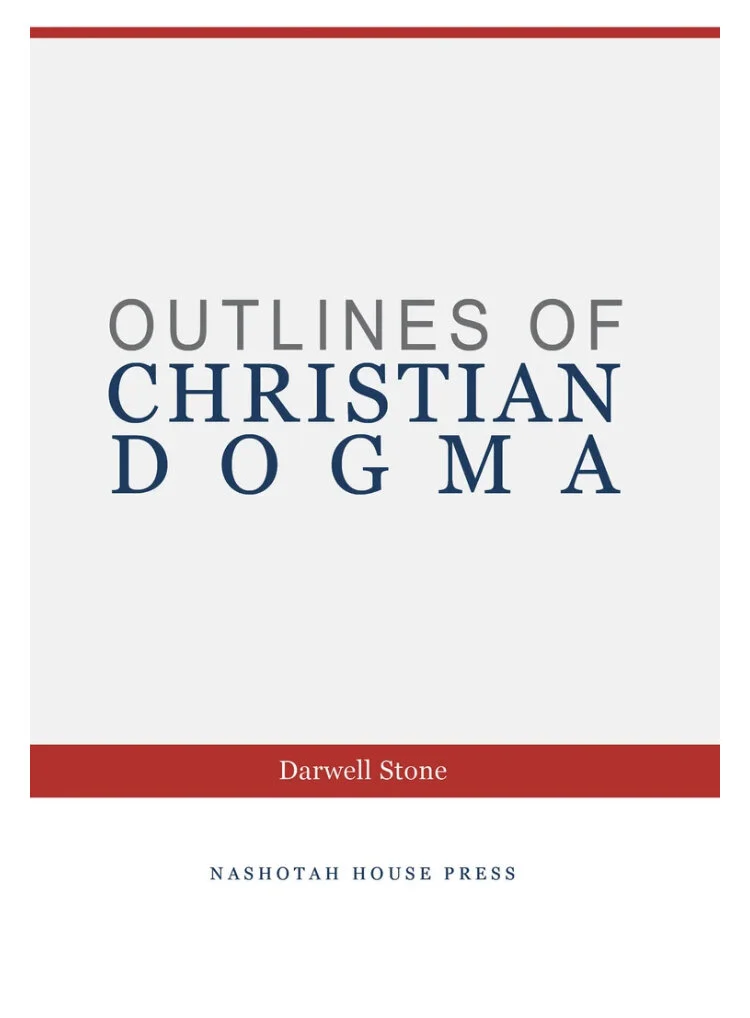
Outlines of Christian Dogma
By Darwell Stone | A Review by The Rev. Ben Jeffries, ’14
All Nashotah alumni leave the House with a profound sense of the great weight — the great gift — of the Great Tradition. The substance of the Faith once for all delivered to the Saints, hammered out in clarity in battles with the heretics in the early centuries, defended by good Bishops, and carried forward by the living Church into our own day. Most Sons and Daughters of the House would agree that Anglicans should hold the Faith that has been believed in all places, at all times, by all people.

On Plagues and Temples
By The Rev. Paul D. Wheatley
In the midst of the ongoing COVID-19 lockdowns, many Christians feel exiled from their own churches, as indeed they are physically. This is hardly a brutal banishment as in past times of persecution, earthquake, and war. The effects of the present Time of the Virus are destructive enough in other ways, to be sure. But church buildings stand, priests, ministers, and bishops are in place and they still send their messages abroad. Yet it is all as if from afar, with most Christians watching, from across their quieted streets or on the screens, the distanced silhouettes of their churches, now barred, wondering what to do. How shall we sing the Lord’s song in a foreign land?
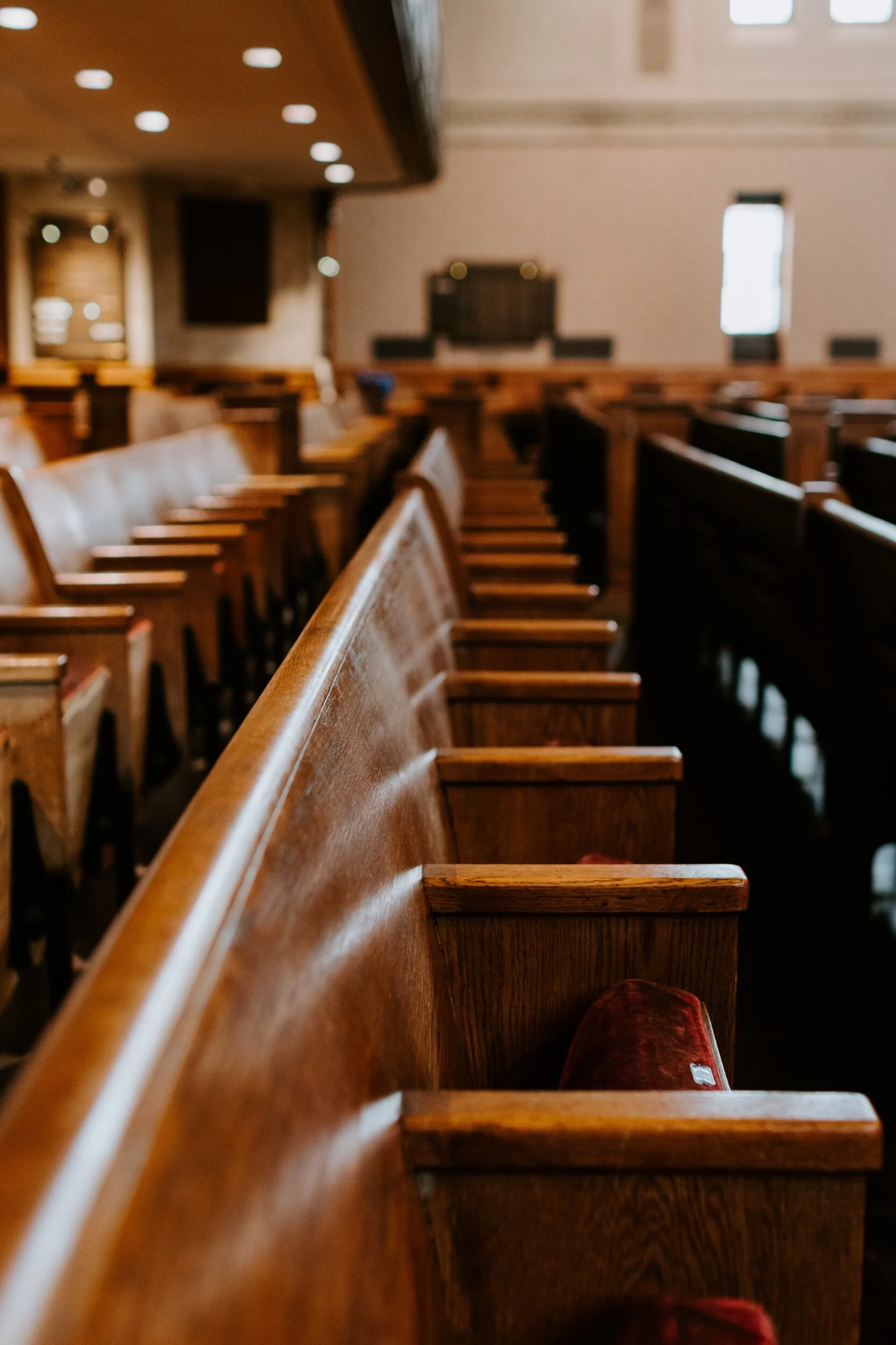
Religious Liberty Dominates the End of the Supreme Court’s 2019 Term as an Uncertain Future Lies Ahead
By The Rev. James F. Sweeney, ‘15
The October 2019 Term of the Supreme Court of the United States produced an unprecedented number of potentially landmark religious liberty decisions, necessitated by the rapid rise of rigid secularism as a major force in American culture and politics. Less than two generations ago, the accommodation of religious belief and practice was simply a given in law and politics.
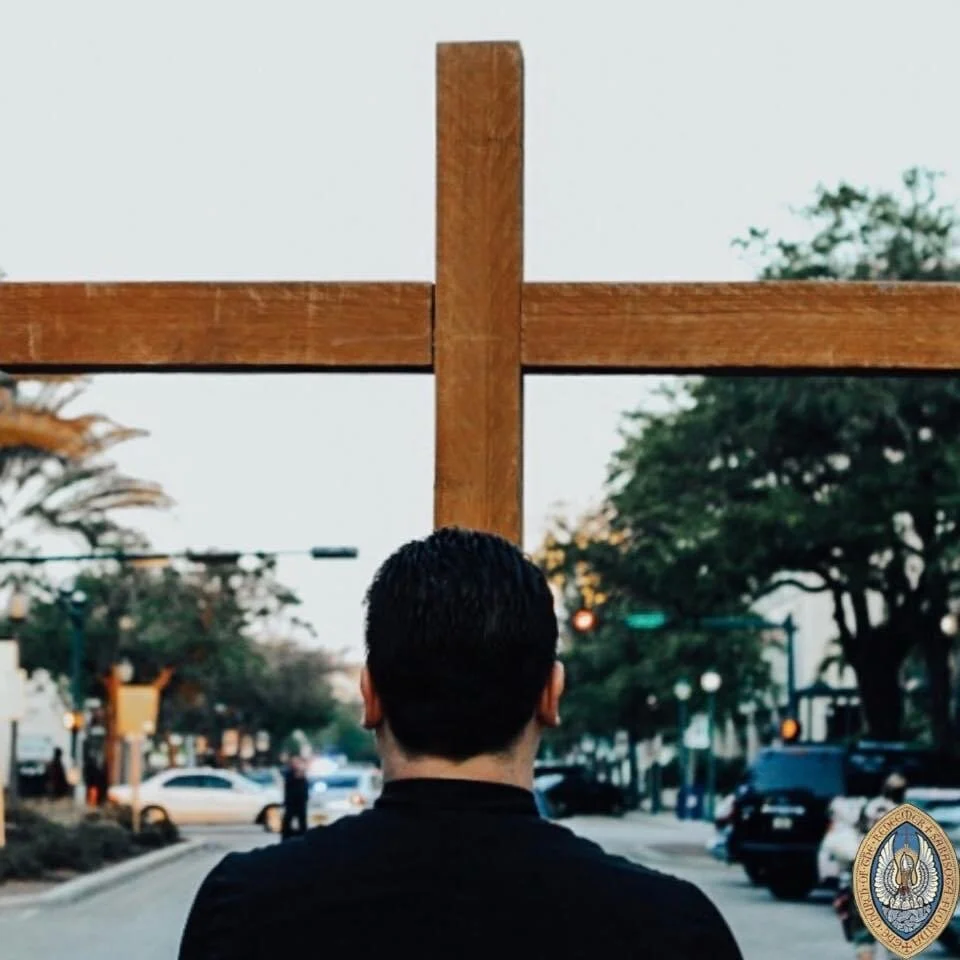
Remaining A Community of Believers
By The Rev. M. Christian Wood, ‘16, Senior Priest Associate for Liturgy and Formation, Church of the Redeemer, Sarasota, Florida
I encourage you to encourage others to share your resources, your ideas, your challenges and successes with one another. Our schedule is here “Redeemer’s Online Campus”; feel free to dip into our archives and glean ideas from our ministries. Also, don’t forget to use The Chapter to share how you’re remaining a community of believers. Send your ideas, links, resources to chapter@nashotah.edu

In Time of Plague or Sickness
The Prayer Book Society Conference 2020
For the first time in its 48-year history the Prayer Book Society (PBS) conducted its annual conference online. The PBS encourages rediscovery and use of the majesty and spiritual depth of the Book of Common Prayer at the heart of the Church of England’s worship, chose In Time of Plague or Sickness as the theme for the 2020 conference.
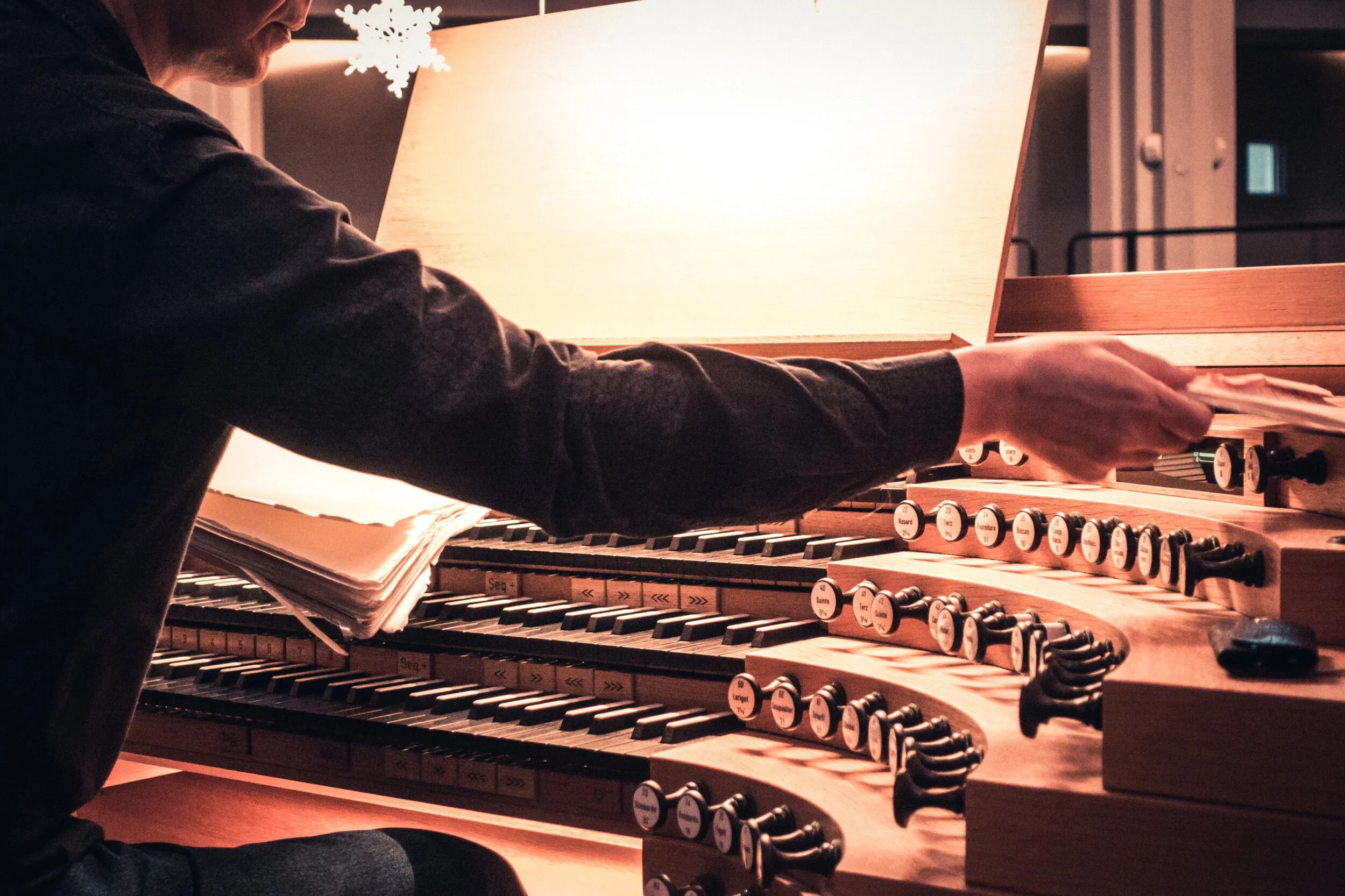
O’er Ancient Forms, Will Newer Rites Prevail?
By Br. Matthew Paul Grote, O.P.
Youth today, posited Dr. Burnett, have a renewed attraction to ritual and liturgy, but they want more than that—they also want to change the world. Transformation is the goal of these young women and men; they seek to be transformed through the grace of God that they might, in turn, transform the world. Is this not the command of our resurrected Lord: to set the world aflame, making disciples of all nations? If so, then liturgy is necessarily an integral part of that transformation. Expounding on the formational abilities of music and liturgy, Rev’d Jeremy S. Begbie spoke on what he sees as the two main ingredients of this transformation.

Making Church Happen
An Interview with Fr. Cameron MacMillan, ’16 By Rebecca Terhune, ‘15
As graduates of Nashotah House following God’s call, we want to serve God’s people in the love of Christ and the power of the Holy Spirit to redeem them from the perils and pains of this life. Our desire to enter into ministry, whether as lay people or clergy, is to offer the relief from suffering that only Jesus can give, to offer the peace that the Holy Spirit — him only, ever present — give and the love of an ever-living God, whose love knows neither bound nor end.
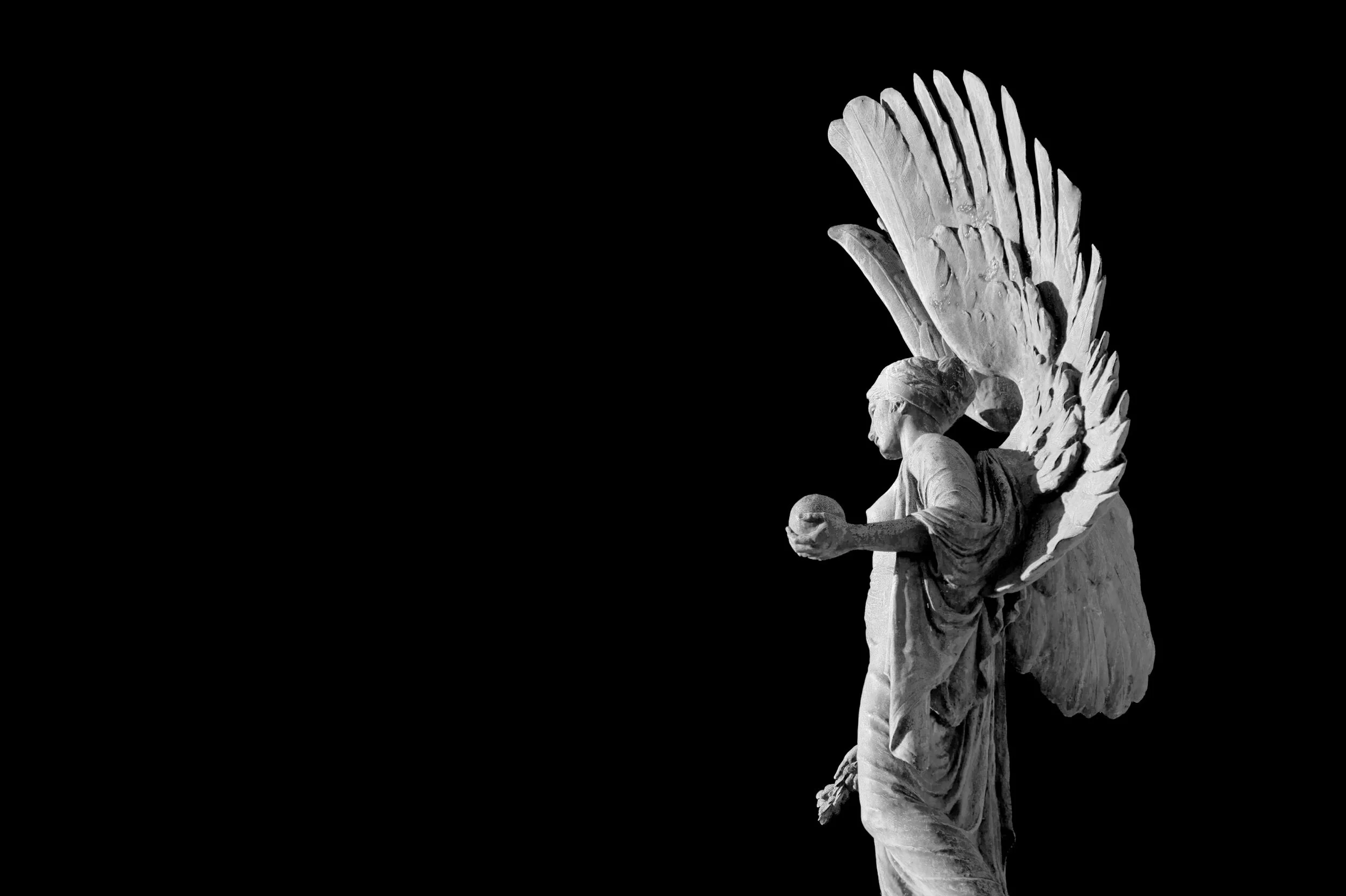
Religion and Angels
By the Rev. Matthew C. Dallman, ’15
We come in the liturgical year to the Feast of St. Michael and All Angels. This feast day enjoyed great popularity in medieval England and the wider British lands of Wales, Scotland and Ireland, as well. So much so that it came to be known as “Michaelmas,”—“Michael’s Mass”—with the same shortened treatment that Christmas, or “Christ’s Mass,” received in popular piety. It was also important because it was a turning point in the English economy each autumn, for it was seen as the official end of the harvest season, and hence new servants were hired, debts paid. Also, the universities began their terms after this day. Nashotah House still calls its Fall semester, “Michaelmas Term.”

Nashotah Notes from Lady Ramsey, 1978
Nashotah House received a lovely letter recently from Mrs. Hester Kirkham, the widow of The Rt. Rev. John D.G. Kirkham, Bishop of Sherborne (1976-2001), and former chaplain to Archbishop of Canterbury Michael Ramsey, among many others. Mrs. Kirkham sent these to us and noted “Joan’s loopy handwriting”. We think you will enjoy this peek into a bit of ‘life at Nashotah House’, as written by Lady Joan Ramsey in 1978.
